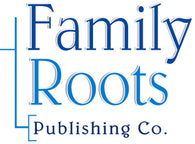
Early Eighteenth Century Palatine Emigration: A British Government Redemptioner Project to Manufacture Naval Stores - Germany
Early Eighteenth Century Palatine Emigration: A British Government Redemptioner Project to Manufacture Naval Stores by Walter Allen Knittle; 340 pp; paperback; 5.5x8.5; Published: 1937, Reprinted: 2006; ISBN 0-7884-1977-3; index, Item # HBK1977
Early Eighteenth Century Palatine Emigration: A British Government Redemptioner Project to Manufacture Naval Stores - Walter Allen Knittle. Walter Knittle's exploration of the 1709 immigration of Germans to England, and then the colonies, is proof that the subchapters of history are often more intriguing than the main events. History buffs will enjoy the wealth of detailed data that the author has amassed to explain the causes and nature of this mass exodus from the war ravaged Rhine Valley. Thousands of predominantly Protestant farmers, laborers and skilled workers, lured by promises of land and religious freedom sought a better life and a secure future for their children, but found instead uncertainty, delay, and impoverished, cramped living conditions. Stranded for a time in London, while their fate was debated by politicians, land speculators and even the Queen, they eventually resettled in diverse regions of the British Empire, including Ireland and America. Large sums of money were expended privately and by the Crown to ensure these settlements would take root and prosper, but hostile climates, disease, sparse provisions and broken promises thwarted them at every turn. What's most amazing about this tale is that so many of them managed to survive and become an integral part of our nation's history. For genealogists interested in families that did survive, and settled primarily in New York, Pennsylvania, and North Carolina, there are lists with about 12,000 names of Palatines.
Early Eighteenth Century Palatine Emigration: A British Government Redemptioner Project to Manufacture Naval Stores - Walter Allen Knittle. Walter Knittle's exploration of the 1709 immigration of Germans to England, and then the colonies, is proof that the subchapters of history are often more intriguing than the main events. History buffs will enjoy the wealth of detailed data that the author has amassed to explain the causes and nature of this mass exodus from the war ravaged Rhine Valley. Thousands of predominantly Protestant farmers, laborers and skilled workers, lured by promises of land and religious freedom sought a better life and a secure future for their children, but found instead uncertainty, delay, and impoverished, cramped living conditions. Stranded for a time in London, while their fate was debated by politicians, land speculators and even the Queen, they eventually resettled in diverse regions of the British Empire, including Ireland and America. Large sums of money were expended privately and by the Crown to ensure these settlements would take root and prosper, but hostile climates, disease, sparse provisions and broken promises thwarted them at every turn. What's most amazing about this tale is that so many of them managed to survive and become an integral part of our nation's history. For genealogists interested in families that did survive, and settled primarily in New York, Pennsylvania, and North Carolina, there are lists with about 12,000 names of Palatines.
